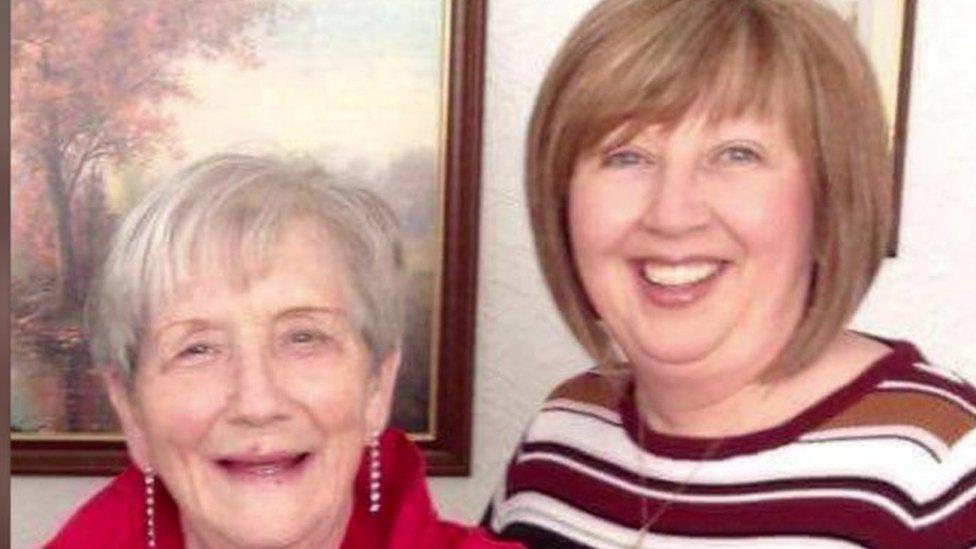Covid inquiry: Boris Johnson rejects criticism of NI communications
- Published
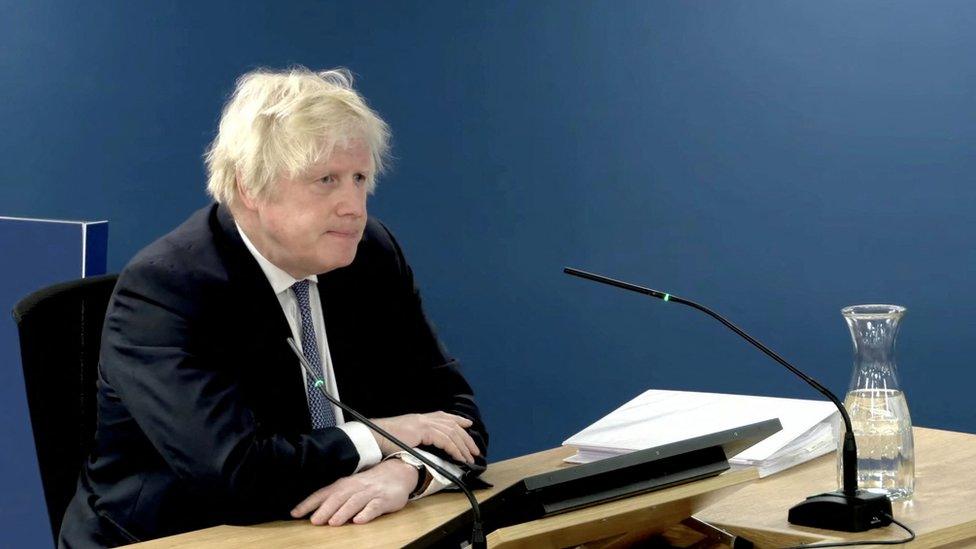
Boris Johnson was questioned by a lawyer representing families bereaved by Covid in Northern Ireland
Former PM Boris Johnson has rejected claims his government did not communicate properly with devolved administrations during the pandemic.
The inquiry previously heard ex-deputy first minister Michelle O'Neill describe contact as "ad hoc and tick-box" exercises.
She had also criticised the flow of information from the UK government.
Mr Johnson said he rejected suggestions of a "high-handed, incommunicative" approach from Number 10.
On Thursday, he faced questioning from Brenda Campbell KC, who was representing Northern Ireland Covid-19 Bereaved Families for Justice at the inquiry.
He also again insisted he could not have done more at the time prevent staff in Number 10 from breaking Covid rules.
"I think the answer to that is given what I knew at the time the answer is no, but what I should have done is issue a general instruction to everyone to be mindful of the rules and how things would appear," he said.
In October, Catriona Myles told the UK Covid-19 Inquiry her father died in Antrim Area Hospital in December 2020 with no family by his side.
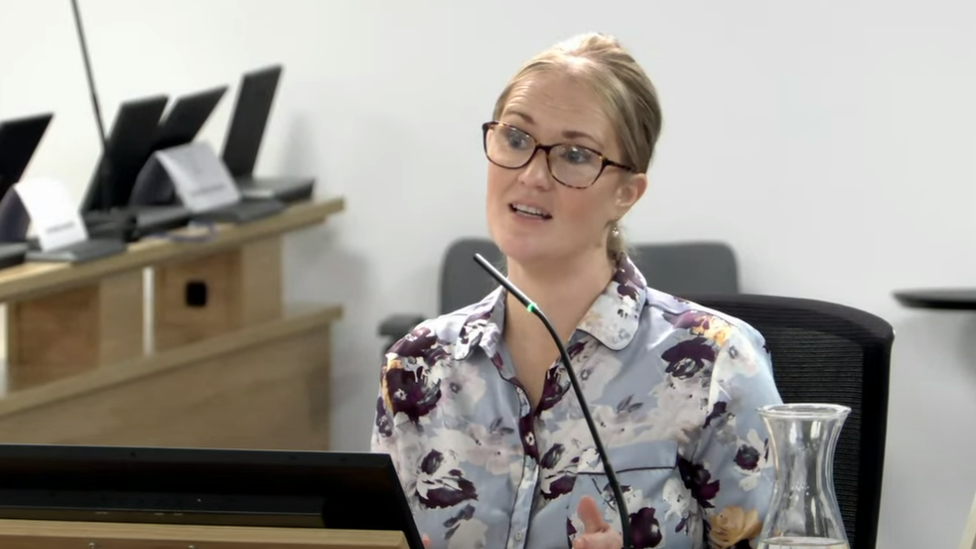
Catriona Myles previously told the inquiry she was sickened to find out there was a party in No 10 as her father was dying alone
Asked by Ms Campbell KC if he had watched bereaved families from Northern Ireland give evidence to the inquiry, he replied: "No."
Asked why not, he said he had not been able to watch all of the evidence since the inquiry began sitting.
Pressed on the issue of communication between governments, Mr Johnson said: "We had a huge amount of contact between Number 10 and the DAs (devolved administrations)... every effort was being made to bring everyone along together."
He also defended a decision to stop joint ministerial meetings, instead delegating Michael Gove as Chancellor of the Duchy of Lancaster to hold regular four-nation calls with the leaders of the devolved administrations.
Mr Johnson denied that this had a negative impact on communications and said he had always had "excellent" relations with former first and deputy first ministers of Northern Ireland, Michelle O'Neill and Arlene Foster.
Vaccines in NI vs EU
He was also asked if the "geographical features" of the island of Ireland had been considered by the UK government when approaches were being taken.
He said clearly the government had to take account of that, but defended the "faster" rollout of the vaccine in Northern Ireland.
"I remember going to Northern Ireland in early 2021 and seeing how very much faster vaccines were being rolled out in NI than they were... and no one will thank me for saying this, over the border, in the EU. There were reasons for that.
"The Westminster approach you've deprecated led to significant benefits for people in Northern Ireland."
- Published6 December 2023
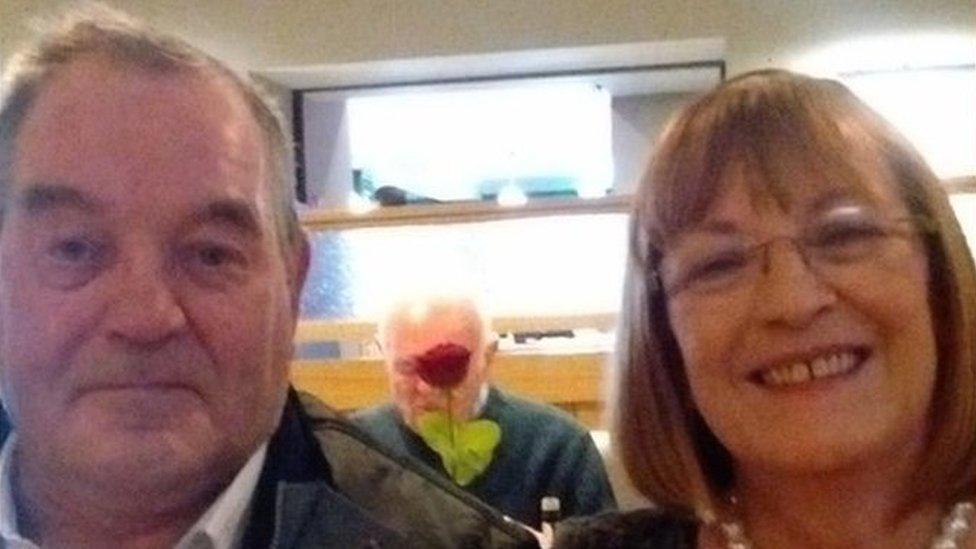
- Published5 October 2023

- Published12 July 2023
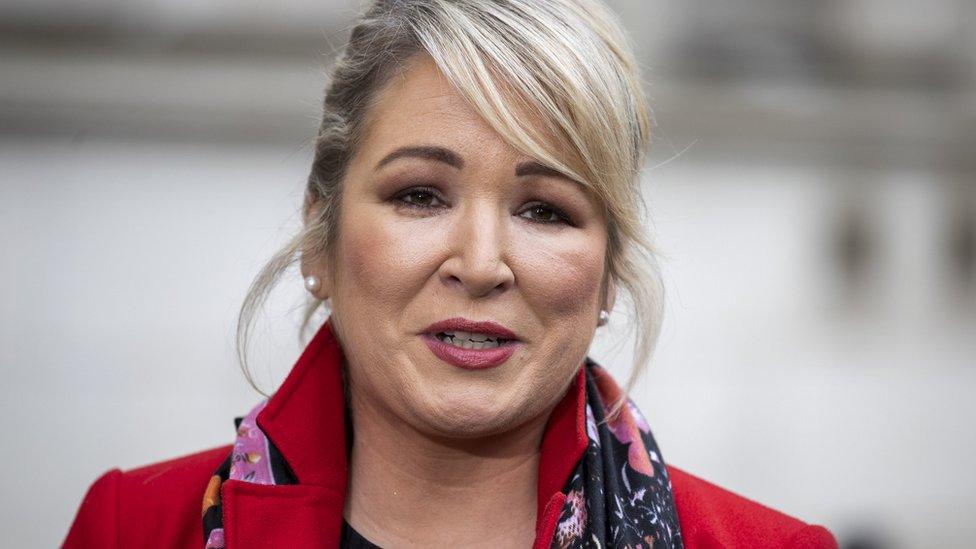
- Published25 April 2023
